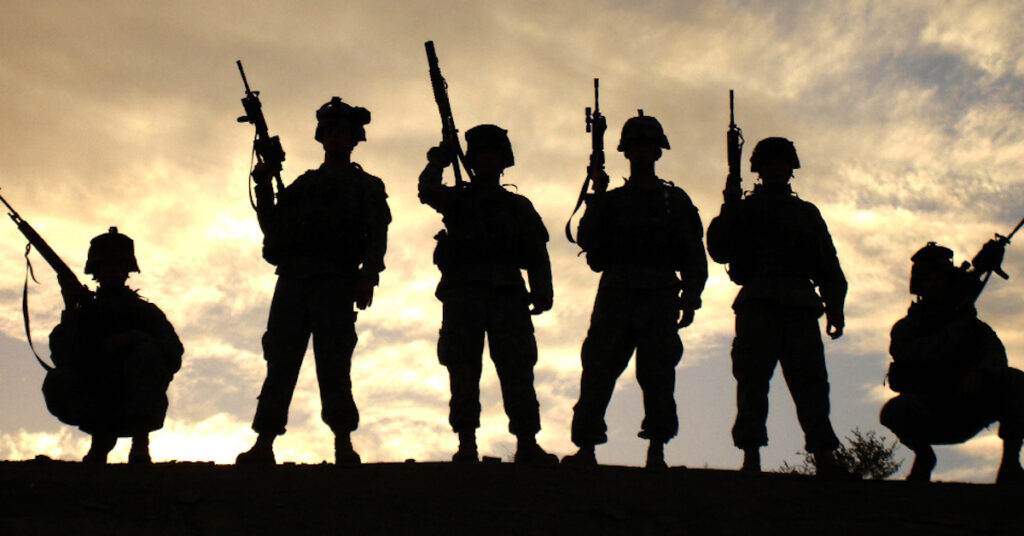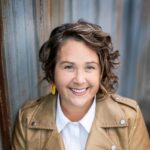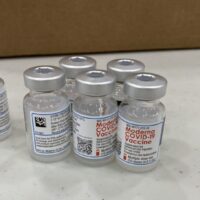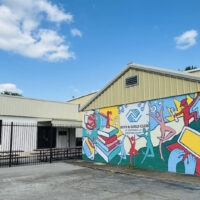On Friday, our country celebrated Veterans Day. For many veterans, it’s a day of silence instead of celebration because the reality of what many veterans experience doesn’t fit or match narrative America creates in blockbuster films or on military-recruitment billboards. The disconnect between what civilians think military service entails and what many veterans experience is a mile wide. That’s because telling the truth is uncomfortable for both soldiers and those who support them.
Truth be told, “thank you” isn’t what will interrupt the rising veteran suicide rate or provide help for those struggling alone with mental health.

But I do believe we can help. We can take action this Veterans Day by doing three things: facing the truth, creating community connections, and giving veterans access to their own stories.
I believe disconnection and despair are killing us. If we don’t know the current story veterans are living through, we can’t change it.
As an Army veteran, here are four truths I wish others to know:
One, suicide rates are at an all-time high, even though combat is decreasing as our forever wars have ended. In 2021, the research found that 30,177 active-duty personnel and veterans who served in the military after 9/11 have died by suicide — compared to the 7,057 servicemembers killed in combat in those same 20 years. That is, military suicide rates are four times higher than deaths that occurred during military operations.
Two, military sexual trauma — rape, assault, or harassment — is experienced by 55% of female veterans and 38% of men in the military. There are more male veterans than female veterans. So, even though military sexual trauma is more common in women veterans, over half of all veterans with military sexual trauma are men. It is a major contributor to post-traumatic stress disorder (PTSD).
Three, two-thirds of veterans who committed suicide were not connected to Veterans Affairs. This is not by accident. If the military is where you were harmed, it’s probably not the place you will go for help or healing. Our communities are where we can reach veterans. We need to go to them and meet them where they are.
- SUBSCRIBE: Sign up for our newsletters
And four, rural states carry the highest burden of military service. Alaska, Montana, Virginia, Wyoming, and Maine have the highest percentage of veterans serving per population. Rural living can be isolating, especially if you’ve experienced something that makes you different from those in your community.
If reading these statistics is uncomfortable, can you imagine how uncomfortable it is for veterans living them or trying to talk about them?
Simply put, more than being thanked this Veterans Day, I want more veterans to stay alive this year. I want to interrupt the rising suicide rates and launch a preemptive strike at the isolation and despair that is following veterans home, especially to rural areas. I refuse to allow one more unspoken hard story to leave a veteran feeling disconnected from their community or alone. And I believe we can do it.
That was my inspiration for writing Waging Peace: One Soldier’s Story of Putting Love First. I didn’t want to be quiet anymore, for my sake or for those who had war change them but didn’t know how to tell their families or friends or faith community. I wanted to live fully, and that meant breaking my 10 years of silence after coming home from serving in Iraq. I feel less alone now.

Writing the book, and the work that has flowed out of that process has helped me and others find healing and hope by centering veterans on hard-to-talk-about experiences. Connection is the antidote to despair.
Veterans need the opportunity to reckon with our own stories. We need to put words to uncommon or painful experiences. We need to start conversations and build unlikely connections and relationships through shared experiences. We need to be able to imagine who we want to be and what a world of peace could look like.
Dr. Bessel Van Der Kolk, a leading voice on trauma, tells us, “Being able to feel safe with other people is probably the single-most-important aspect of mental health; safe connections are fundamental to meaningful and satisfying lives.”
This Veterans Day, let’s create more safe connections, ones built on veterans’ rarely-talked-about real experiences, instead of Hollywood blockbusters.
This article first appeared on The Daily Yonder and is republished here under a Creative Commons license.
Diana Oestreich of Duluth, Minnesota, is a veteran and peacemaker who spent 397 days in the Iraq War as a combat medic. She is the author of Waging Peace: One Soldier's Journey of Putting Love First and the founder of The Waging Peace Project, which empowers everyday people to commit small acts of courage.



